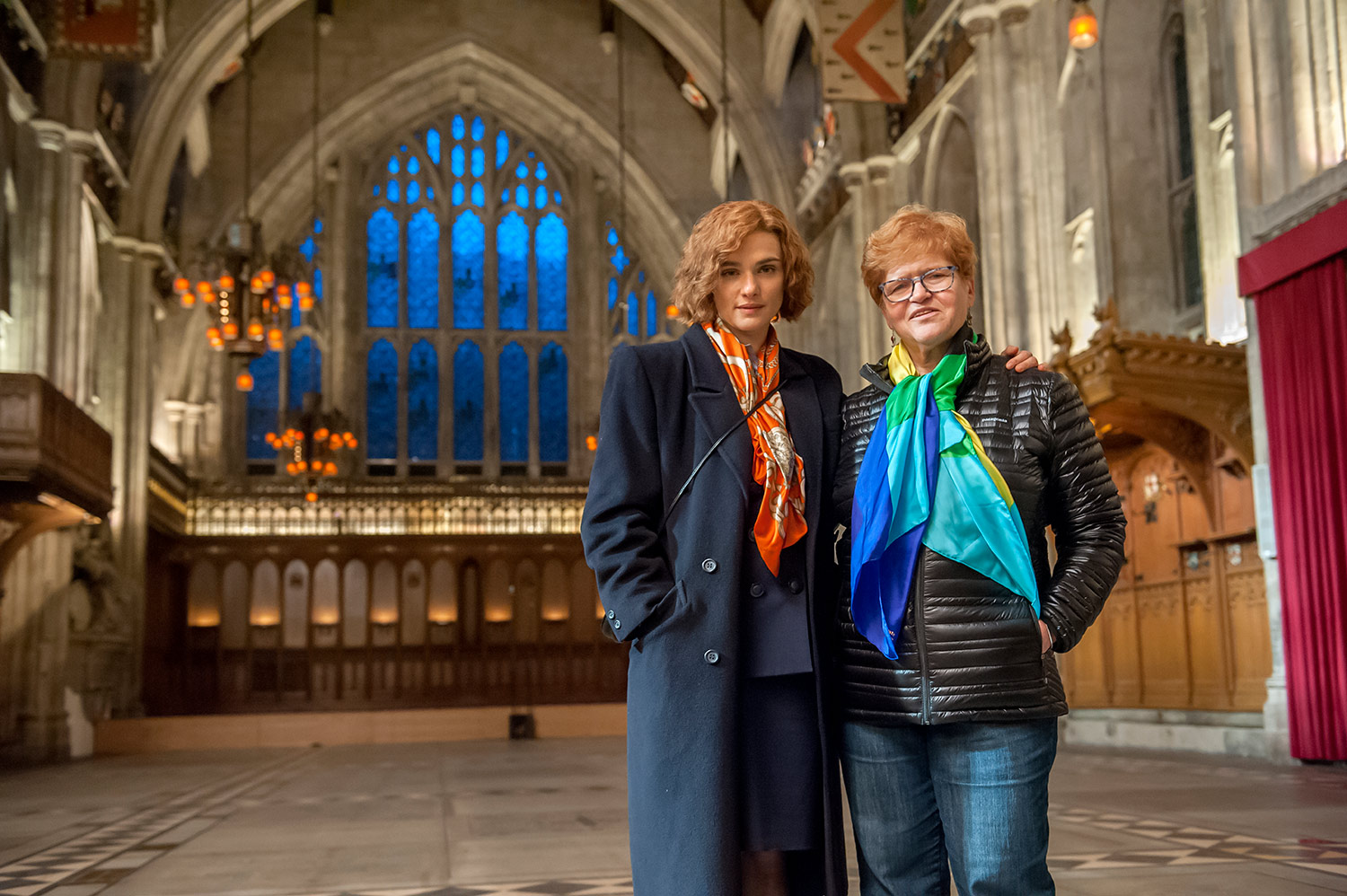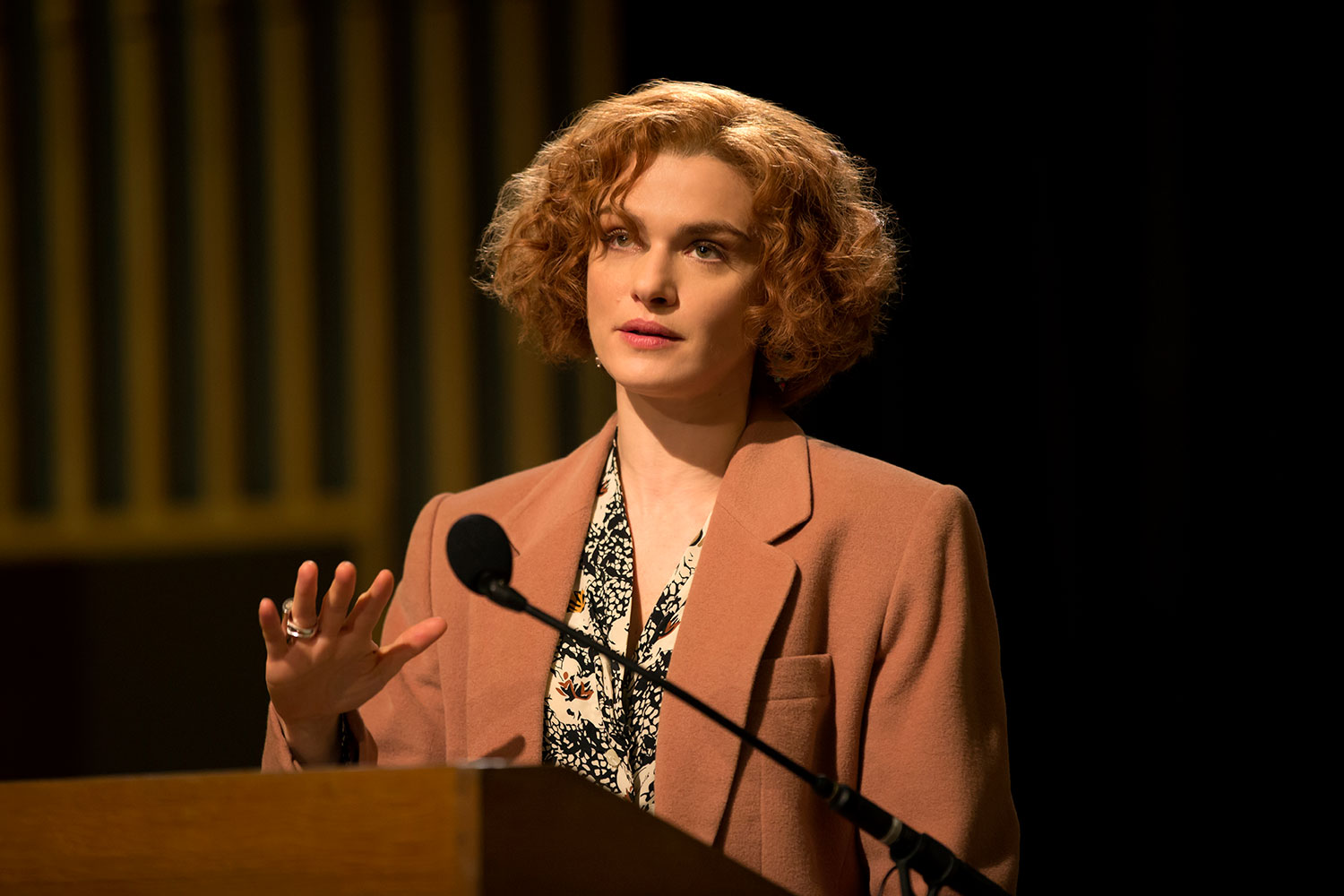
Photograph by Liam Daniel/Bleecker Street
Today as we head to the polls, our heads swimming with whatever was deposited in our social media newsfeeds overnight, the new film Denial is perhaps more relevant than ever. Based on Emory University Dorot Professor of Modern Jewish and Holocaust Studies Deborah Lipstadt’s harrowing 2000 U.K. court case where she was sued for libel by Holocaust denier David Irving, the film stars Rachel Weisz as Lipstadt. Unlike the United States, English libel law puts the burden of proof on the defendant. In the judge’s ruling for Lipstadt, Justice Charles Gray stated, “History has had its day in court and scored a crushing victory.”
In a conversation with Atlanta, Lipstadt discussed the importance of getting the story right on film, how she helped Weisz become her on set (including loaning the Oscar winner some signature fashion accessories) and the growing importance of fact-checkers in our current “post-factual” political climate.
Watching Denial, one can’t help but think about our news feeds currently brimming with election-related conspiracy theories and wild inaccuracies. This problem has only gotten worse since the David Irving libel suit, hasn’t it?
It has. And it’s not just the presidential election either. There was a cover story in The Economist a couple of weeks ago about how we’re now living in a “post-factual era.” Or as that great American social commentator Stephen Colbert referred to it, “truthiness.” The idea is “if I really believe it, it must be true.” No one wants to believe the fact-checkers, and we dismiss people who say “that’s simply not true.” Whether you’re talking about Barack Obama’s birth certificate or Brexit, there are people out there now who just immediately dismiss expertise and label it “elitism.” I’m sorry, there are certain things that are just true and can’t be debated. The Holocaust is one of those things.

Photograph by Laurie Sparham/Bleecker Street
Denial is based on your book History on Trial: My Day in Court With a Holocaust Denier. A lot of authors sell book rights to Hollywood and have no involvement in the film adaptation. That was not your experience. Did you have a clause in your contract giving you a voice or were you left to the whims of Hollywood?
Essentially, I was at the whims of Hollywood. But thankfully, the people I signed with, the producers Gary Foster and Russ Krasoff and BBC Films recognized this film was all about truth. Everyone involved—director Mick Jackson, screenwriter David Hare—all recognized that. So they turned to me at various points to get my feedback. Rachel Weisz also wanted my input. She wanted to know how I felt certain things should play out, how I said something, how I felt at a certain moment. It was a very interesting process. In the beginning, she wanted me on the set. She liked my energy, she liked having me there. But as she got further into the role, I became a distraction for her. She was Deborah Lipstadt. I made sure I was as unobtrusive as possible. Everyone felt a huge commitment to getting it right.
You’ve said that Timothy Spall had perhaps the toughest role in the film playing David Irving. Did he ask you any questions about playing this guy?
Timothy was wonderful. He did all his own research. He watched videos of Irving. He did his reading. He prepared in a meticulous fashion. He didn’t need to hear from me that I thought the guy was an S.O.B. or whatever. He said something very interesting in the featurette for the film that [Denial’s distributor] Bleecker Street produced. He said, “I knew he was a despicable character but I couldn’t play him that way. I had to play him as a person who believed he was right. I couldn’t play him as a caricature.”

Photograph by Alberto E. Rodriguez/Getty Images
You’ve struck up quite a friendship with Rachel Weisz. You lent her some of your scarves and a ring to wear in the film and you did a joint interview together for the New Yorker. What bonded you two together?
She takes every role she does very, very seriously. She is committed to getting it right. She knew I could be an important source of information for her. It was her professionalism that would have bound us together anyway. But in addition to that, her parents were [Jewish] refugees fleeing Eastern Europe during the war. She knows first-hand what these people went through.
Early in Denial, there’s a scene depicting you in your classroom at Emory University, asking your students how they know the Holocaust happened. One student replies, “Photographic evidence.” You respond by saying, “There was not one photo of a victim taken inside a gas chamber.” How close to reality did that scene get depicting the conversations inside your classroom?
That scene could be in my book, but that also comes from conversations I had with David Hare. He came to Emory and sat in on my classes and followed me around for two and a half days to see what my life was like. That’s the level of exactitude these people brought to the film.
We are currently living in a country where Donald Trump and others publicly questioned where Barack Obama was born, and there are people who deny the Sandy Hook elementary school shootings happened. Now that Denial is out there in world and presumably could be watched by students 30 or 50 or 100 years from now, what’s the lasting impression you hope it makes?
It really goes back to your first question. There are opinions, there are facts and there are lies. Whether you’re a liberal or a conservative, certain things are true. You can debate how they happened but not if they happened. Conspiracy theories are designed to create distrust. Sandy Hook happened. So did 9/11. The Holocaust is a fact. It’s up to each of us to be critical of the things we see online. Each of us has a responsibility to research things and decide if it’s true. Seek out the evidence.









![The North Carolina Museum of Natural Sciences’ newest exhibit is a [pre]historic first](https://cdn2.atlantamagazine.com/wp-content/uploads/sites/4/2024/04/DD-3-100x70.jpg)



